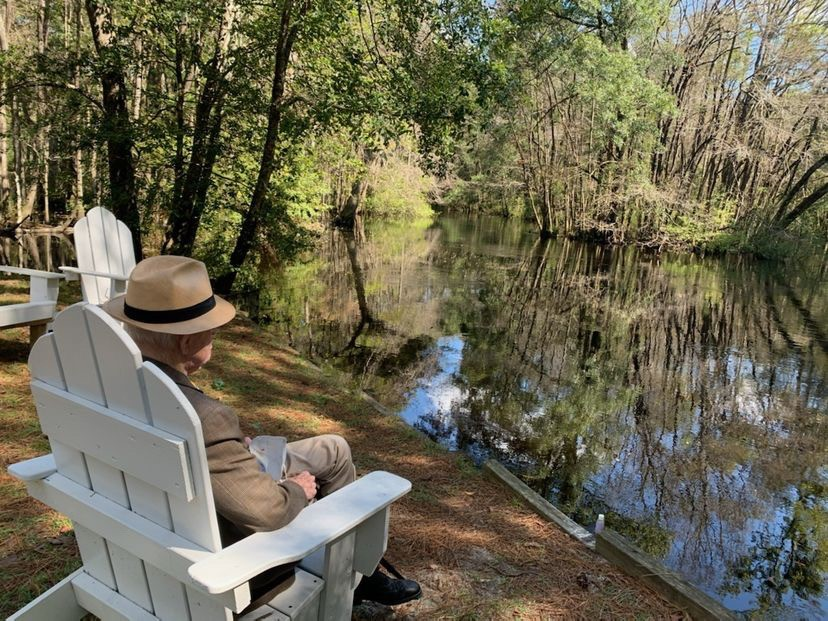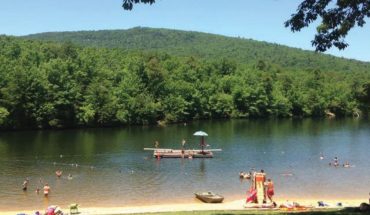In Riverton North Carolina, my family gathers to connect in a wilder place, at a slower pace.
by Riley Bensen

In Riverton, North Carolina, love runs as steadily as the Lumber River snaking through the land. In this place steeped in history and tradition, where my Scottish ancestors settled, I have always felt a sure sense of belonging. A few weekends each summer, my family packs up the car and heads down for a few days of good food, soulful music, swims in the river, and kinship.
At 6 years old, I would forge into the longleaf pines and be gone for hours. No one came searching for me. They knew I was safe, under the watchful eyes of a vast extended family — and mindful that the roots that caught my training wheels would stop me from venturing too far. I explored the vineyards and corn fields, sometimes with Boo the dog trailing after me (she knew her way around better than I did), and invited myself onto any porch that offered good smells or good music.
In Raleigh, where I’ve grown up, there has always been a constant gogo-go to my days. School, basketball practice, homework, friends, and what seems like a never-ending list of responsibilities that has only grown longer with each passing year.
But Riverton is a place of mosquito bites, scabbed knees, and exploring the swamp surrounding the river landing. This is where I learned to shuffle cards and ride a bike and give stick shift a try in “Big Red,” my uncle’s 1962 International. There is a simplicity and slowness to the woods that leaves you feeling full — while a full schedule sometimes leaves you feeling empty.
I’ve tried to soak up the lessons and history of the family around me, especially from my maternal grandfather, Papa. I’ve learned the World War II songs that Papa leads as he walks the 4th of July parade route, even at 95; I know the color of the dress my grandmother wore the first time he saw her (yellow-checkered); I listen for the wisdom in his speeches and prayers. As I’ve grown older, it has all become more precious to me. There is no one I know who has experienced so much or loved as deeply as Papa.
Riverton has also always been a place that made me, the baby of 16 grandchildren, feel connected to my older cousins, even when their lives were in very different places from my own. I watched their every move, trailed after them when I could, and laughed at jokes I did not understand. I vividly recall sitting on the ground, gazing at one cousin stretched out on the dirty green couch, tearily recounting her first heartbreak. I held on to every word and wondered what it would be like to fall in love. I see traits in each of them that I wish I could riff off, like working someone else’s guitar lick into my own tune: Campbell’s free-spiritedness, Katie’s grace, Roy’s wit.
When I think about Riverton, I often reflect on my paternal grandfather, a Russian refugee of the Bolshevik Revolution. He had to leave his home and most everything behind when he and his brother and mother escaped to Czechoslovakia, then immigrated to America. He eventually settled in Raleigh, working as a family physician for decades. His story, joined with the story of Riverton, has helped me to understand what a powerful gift it is to be able to gather again and again for generations in such a special place.
And so, at the river, when I join hands with family on my left and right, with our heads bowed to sing Blessed Be the Tie That Binds, I feel a deep connection to where I’m from — and a deep understanding of what’s most important.



